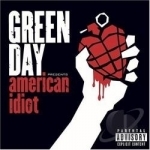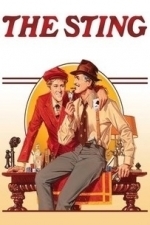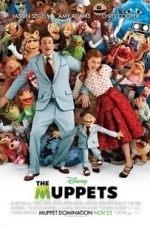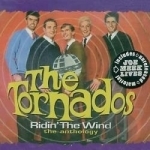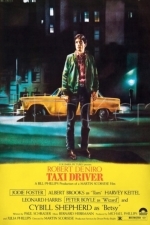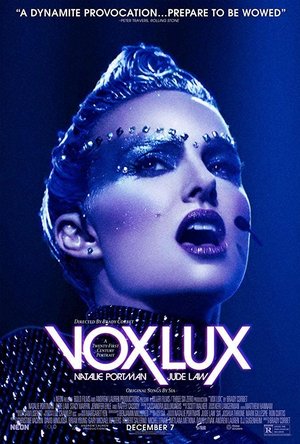Search
Search results
Daniel Boyd (1066 KP) rated American Idiot by Green Day in Music
Nov 2, 2017
Soda Pop & Ritalin
For some reason people like to slag Green Day, they are the butt of a lot of punk music jokes and to be honest I do get why. I understand why people see their use of makeup and their whole zany persona as a farce and don’t take them seriously, but no matter what you think of them in general, it is hard to deny that their seventh album, ‘American Idiot,’ perfectly captured the zeitgeist at the time, especially in the US. The album was an unexpected maturation of any of the band’s previous efforts and capitalised on their potential. When Billie Joe Armstrong wrote the album, he chose to channel his feelings into a cast of various characters and use a concept album format to display the emotions he and his peers felt at the time. I would argue the fact that American Idiot is definitively a concept album, as it doesn’t actually tell a cohesive story with a beginning, middle and end, instead opting for the approach of latching on to a certain feeling, whether it be rage or love and assigning that to a specific character and then throwing all of these characters into the mixing pot together. We hear the album from the perspective of the protagonist in the story, Jesus Of Suburbia, a young man who is sick of a broken system and feels disillusioned and uninspired by everything that he sees around him. The reason that so many people felt this way at the time of this album’s release, 2004, was due to the Bush administration’s misguidance and outright lies and due to the fallout from the 9/11 terrorists attacks that has never really gone away in America since the incident occurred. So, fed up of his suburban, dead end town Jesus leaves home and begins a quest of self discovery that involves a great deal of substance abuse, which ends up leading to the creation of an alter ego residing in Jesus’ mind who calls himself Saint Jimmy. Think Tyler Durden in fight club, but if he had a Mohican and ear stretchers. Jimmy leads Jesus on the thinly veiled path to revolution, which simply turns out to be a path to self destruction and eventually when Jesus hits rock bottom, (just like Fight Club,) he forces Jimmy to commit suicide and rids his mind of him. At the end of the album though Jesus’ fate is left ambiguous, but what is clear is that his journey has taken its toll on him, which is signified by the fact that he forgets the name of the girl that he fell in and out of love with during his spiritual quest. This album perfectly captured the mindset of a generation of kids forgotten by the system that was put in place to help them grow. American Idiot gives the man on the street a well informed, unified voice and actually injects some form of leadership into the political and social landscape at the time, even if it probably isn’t the form of leadership that your parents had in mind, or the government had put in place for you. A wake up call that is essential and still relevant today, this album and its story and character carries the important message that we shouldn’t settle for any less than what we deserve and what we deserve is often a lot better than what we end up getting. This album is pretty much the American version of Never Mind The Bollocks.
BankofMarquis (1832 KP) rated The Sting (1973) in Movies
Mar 29, 2020
On my list of All Time Favorite Films
I'll come right out and say it - the 1973 Academy Award winning film for Best Picture, THE STING, is one of the greatest films of all time. It's well written, well acted, well directed with a memorable musical score and characters, situations, costumes and set design that become richer over time and through repeated viewings.
Set in Chicago in the gangster-ridden, depression era mid-1930's, THE STING tells the tale of two con man who join forces for the ultimate con of a vile N.Y. Gangster who is responsible for killing a friend of theirs.
From everything I have read about it, the script by David S. Ward (who won an Oscar for his work) arrived pretty much finished. He shaped the story of the con men - and the myriad pieces of misdirection - fully before shopping it around to the studios. Universal jumped all over it and tabbed veteran Director George Roy Hill (BUTCH CASSIDY AND THE SUNDANCE KID) to helm the picture. Hill - being no dummy - saw this as a vehicle to re-team Newman and Redford (stars of Butch Cassidy) and the rest...as they say...is history.
Newman and Redford are perfectly cast as veteran grifter Henry Gondorff (Newman) and up and coming grifter Johnny Hooker (Redford). They have an ease of playing off of each other - each one complimenting the other one - both giving in their scenes with the other one which makes the scenes more rich and alive. They are joined by a veritable "who's who" of late '60's/early '70's character actors - Harold Gould, Eileen Brennan, Charles Durning, Ray Walston and Dana Elcar - all of them bring their "A" game and they are fun to watch. Special notice should be made to Robert Earl Jones (father of James Earl Jones) as Luther, the character who's fate propels the plot forward.
But...none of this would work if you didn't have a "bad guy" that was interesting to watch - and to root against - and bad guys don't get much better...and badder...than Robert Shaw's Doyle Lonnegan. Shaw plays Lonnegan as a physically tough boss who doesn't suffer failure, but is smart enough to avoid obvious traps. He is a worthy adversary of Gondorff and Hooker's and it is fun to watch Newman, Redford and Shaw play off each other. One other note - it was with this performance that Universal recommended Shaw to young Director Stephen Spielberg for his "shark flick" JAWS.
Edith Head won her 8th (and last) Oscar for the magnificent period costumes in this film and Marvin Hamlisch won for the Music - a surprising hit on the pop charts of re-channeled Scott Joplin tunes. The set design won an Oscar - as did the Director, George Roy Hill. All in all, the film won 7 out of the 11 Oscars it was nominated for (Redford was nominated for Best Actor, but did not win).
THE STING is a well crafted film. One that tells a timeless story and that stands the test of time as a testament of how great of an achievement in film this is. It is one of my All Time favorites.
Letter Grade: the rare A+
5 stars (out of 5) and you can take that to the Bank(ofMarquis)
Set in Chicago in the gangster-ridden, depression era mid-1930's, THE STING tells the tale of two con man who join forces for the ultimate con of a vile N.Y. Gangster who is responsible for killing a friend of theirs.
From everything I have read about it, the script by David S. Ward (who won an Oscar for his work) arrived pretty much finished. He shaped the story of the con men - and the myriad pieces of misdirection - fully before shopping it around to the studios. Universal jumped all over it and tabbed veteran Director George Roy Hill (BUTCH CASSIDY AND THE SUNDANCE KID) to helm the picture. Hill - being no dummy - saw this as a vehicle to re-team Newman and Redford (stars of Butch Cassidy) and the rest...as they say...is history.
Newman and Redford are perfectly cast as veteran grifter Henry Gondorff (Newman) and up and coming grifter Johnny Hooker (Redford). They have an ease of playing off of each other - each one complimenting the other one - both giving in their scenes with the other one which makes the scenes more rich and alive. They are joined by a veritable "who's who" of late '60's/early '70's character actors - Harold Gould, Eileen Brennan, Charles Durning, Ray Walston and Dana Elcar - all of them bring their "A" game and they are fun to watch. Special notice should be made to Robert Earl Jones (father of James Earl Jones) as Luther, the character who's fate propels the plot forward.
But...none of this would work if you didn't have a "bad guy" that was interesting to watch - and to root against - and bad guys don't get much better...and badder...than Robert Shaw's Doyle Lonnegan. Shaw plays Lonnegan as a physically tough boss who doesn't suffer failure, but is smart enough to avoid obvious traps. He is a worthy adversary of Gondorff and Hooker's and it is fun to watch Newman, Redford and Shaw play off each other. One other note - it was with this performance that Universal recommended Shaw to young Director Stephen Spielberg for his "shark flick" JAWS.
Edith Head won her 8th (and last) Oscar for the magnificent period costumes in this film and Marvin Hamlisch won for the Music - a surprising hit on the pop charts of re-channeled Scott Joplin tunes. The set design won an Oscar - as did the Director, George Roy Hill. All in all, the film won 7 out of the 11 Oscars it was nominated for (Redford was nominated for Best Actor, but did not win).
THE STING is a well crafted film. One that tells a timeless story and that stands the test of time as a testament of how great of an achievement in film this is. It is one of my All Time favorites.
Letter Grade: the rare A+
5 stars (out of 5) and you can take that to the Bank(ofMarquis)
Gareth von Kallenbach (980 KP) rated The Muppets (2011) in Movies
Aug 7, 2019
As a child, I have fond memories of watching The Muppet Show and enjoying the mix of comedy, music, and dance with my family and recapping the show with my friends the following day. Kermit, Ms. Piggy, Fozzie the Bear, and the whole gang were my childhood icons and provided countless hours of entertainment with their brilliant and inspired variety show as well as the three movies that followed. It is hard to believe that 1989 was the last time the gang graced the big screen with “The Muppets in Space”. Thankfully they are back in a big way to delight fans, old and new, this holiday season.
The new films stars Jason Segel as Gary, a mild-mannered guy who has a swell life in his small community. He has been dating the lovely Mary (Amy Adams) for ten years and they are excited to plan their first visit to Los Angeles. Gary has a younger brother named Walter who is a huge fan of the Muppets, having grown up watching the beloved show with Gary. The fact that Walter actually is a Muppet might explain his utter devotion to the show and characters. So when Gary invites Walter to accompany Mary and him on their trip, Walter is ecstatic. At long last, he can visit The Muppet Studios.
Upon their arrival in L.A., Walter is shocked to find the studio in shambles and disrepair. Undaunted, Walter sneaks into Kermit’s old office and accidentally overhears a businessman named Tex Richman (Chris Cooper) plotting to steal the property from the Muppets. Determined to thwart Richman, Walter and Gary look up Kermit the Frog who, despite his reluctance, agrees to reunite the gang to put on a tele-thon to raise the needed money to save the theater.
Along the way there are some great and touching segments where we see what many of the characters have been up to in the recent years, and more than a few laughs and musical numbers also follow. In a race against time, and despite the lack of confidence the network has in their relevance, Kermit must whip the cast and theater into shape for an epic performance.
The movie was an absolute joy. It was so refreshing to see how Segel and director James Bobin have brought the Muppets to a new generation without losing the previous ones and staying very faithful to the characters and to Jim Henson’s vision. Segel, who came up with the story and co-wrote the script, seems to be having the time of his life as he sings and dances his way through several production numbers and gives a very funny, and in turns, tender performance.
Adams is a joy as the sweet, yet determined Mary, and the addition of the new Muppet Walter was a treat. Sure the plot may have been fairly formulaic but there were more than enough moments to keep the adults happy. At our screener, the adults were laughing even lauder than the kids in attendance, especially at the numerous pop culture reference, celebrity cameos, and nostalgic nods to the show.
I do not want to spoil the film but from Beaker doing his take on the Nirvana classic “Smells Like Teen Spirit”, to the Swedish Chef channeling Tony Montana from “Scarface” I was thoroughly entertained. I can honestly say this is not only one of the best of the Muppet movies but it is a perfect film to take the family. Just don’t be surprised if you find yourself enjoying the magic as much, if not more, than the kids.
The new films stars Jason Segel as Gary, a mild-mannered guy who has a swell life in his small community. He has been dating the lovely Mary (Amy Adams) for ten years and they are excited to plan their first visit to Los Angeles. Gary has a younger brother named Walter who is a huge fan of the Muppets, having grown up watching the beloved show with Gary. The fact that Walter actually is a Muppet might explain his utter devotion to the show and characters. So when Gary invites Walter to accompany Mary and him on their trip, Walter is ecstatic. At long last, he can visit The Muppet Studios.
Upon their arrival in L.A., Walter is shocked to find the studio in shambles and disrepair. Undaunted, Walter sneaks into Kermit’s old office and accidentally overhears a businessman named Tex Richman (Chris Cooper) plotting to steal the property from the Muppets. Determined to thwart Richman, Walter and Gary look up Kermit the Frog who, despite his reluctance, agrees to reunite the gang to put on a tele-thon to raise the needed money to save the theater.
Along the way there are some great and touching segments where we see what many of the characters have been up to in the recent years, and more than a few laughs and musical numbers also follow. In a race against time, and despite the lack of confidence the network has in their relevance, Kermit must whip the cast and theater into shape for an epic performance.
The movie was an absolute joy. It was so refreshing to see how Segel and director James Bobin have brought the Muppets to a new generation without losing the previous ones and staying very faithful to the characters and to Jim Henson’s vision. Segel, who came up with the story and co-wrote the script, seems to be having the time of his life as he sings and dances his way through several production numbers and gives a very funny, and in turns, tender performance.
Adams is a joy as the sweet, yet determined Mary, and the addition of the new Muppet Walter was a treat. Sure the plot may have been fairly formulaic but there were more than enough moments to keep the adults happy. At our screener, the adults were laughing even lauder than the kids in attendance, especially at the numerous pop culture reference, celebrity cameos, and nostalgic nods to the show.
I do not want to spoil the film but from Beaker doing his take on the Nirvana classic “Smells Like Teen Spirit”, to the Swedish Chef channeling Tony Montana from “Scarface” I was thoroughly entertained. I can honestly say this is not only one of the best of the Muppet movies but it is a perfect film to take the family. Just don’t be surprised if you find yourself enjoying the magic as much, if not more, than the kids.
James Bagshaw recommended track Telstar by The Tornados in Ridin' the Wind: The Anthology by The Tornados in Music (curated)
BankofMarquis (1832 KP) rated Taxi Driver (1976) in Movies
Sep 10, 2020
Perfect blend of Director, Star and Place
Dark, dirty, rainy, dangerous, foggy, grimy, glorious - all words that would describe New York City in the late 1960's/early 1970's.
They are also words that would describe Martin Scorcese's 1976 film, TAXI DRIVER starring Robert DeNiro (fresh off his Oscar win for Godfather II) in another Oscar nominated performance.
This film is a perfect blend of Director, star and material. These 3 elements come together to blend a vivid portrayal of an outsider/loner observing the decay of the city he loves, finally culminating in his desire to correct some of the wrongs.
I still don't know if I'm talking about Travis Bickle, the character DeNiro is playing, or of Director Scorcese.
DeNiro is powerful in his portrayal of the titular Taxi Driver, Travis Bickle. He subtly underplays the character - especially at the beginning - showing a lost soul wandering the big city. Slowly, this character begins to gain his footing - and that footing is terrifying in the violence that is welling up in him. He has no social attachments - and the 2 that he attempts to gain during the course of this film slips through his grasp the harder he tries to clutch them.
Jodie Foster was Oscar nominated for her turn as 13 year old street walker Iris. It is a stunningly strong performance by an young actress who heretofore was known only for lighthearted "Disney-type" films and shows the strength of character and performer that Foster would become. Albert Brooks and Peter Boyle pop up in this film in somewhat comic-relief roles. Roles that are a needed, and welcome, change of pace for this film. As opposed to Harvey Keitel as "Sport" the pimp of Foster's character. You can sense that he is just as dangerous as Bickle and if these two were to go up against each other, violence is going to erupt.
The surprise of this movie for me was the performance of Cybill Shepherd as Betsy, the object of Travis' desire. She brings a power and grace to her role that is extremely attractive to watch. You are drawn to Betsy and can understand how Travis is drawn to her as well.
But, make no mistake, this is Scorcese's film. He captures the feel of New York City of this time. This film is mostly mood and atmosphere - and that is a good thing. You get the sense that you are there. This film is a time capsule of the "Mean Streets" times of NYC - and shows a Director that knows this city and knows how he wants to show it on film. I was shocked to find out that Scorcese was NOT nominated for an Oscar for his work here, it is that good.
I also was surprised to find that the great Bernard Herrmann (Citizen Kane, Psycho, Vertigo) was the Composer of the film - and he is a great choice. His music perfectly matches - and enhances - the mood that is set up by Scorcese. This film would not be as atmospheric - or would capture the vibe of the time - without Herrmann's score. Unfortunately, Herrmann would pass away shortly after completing his work on this film, so his Oscar nomination was posthumous.
A wonderful blend of character, place and mood. Taxi Driver is timeless because it is about a specific time.
Letter Grade: A
9 stars (out of 10) - and you can take that to the Bank(ofMarquis)
They are also words that would describe Martin Scorcese's 1976 film, TAXI DRIVER starring Robert DeNiro (fresh off his Oscar win for Godfather II) in another Oscar nominated performance.
This film is a perfect blend of Director, star and material. These 3 elements come together to blend a vivid portrayal of an outsider/loner observing the decay of the city he loves, finally culminating in his desire to correct some of the wrongs.
I still don't know if I'm talking about Travis Bickle, the character DeNiro is playing, or of Director Scorcese.
DeNiro is powerful in his portrayal of the titular Taxi Driver, Travis Bickle. He subtly underplays the character - especially at the beginning - showing a lost soul wandering the big city. Slowly, this character begins to gain his footing - and that footing is terrifying in the violence that is welling up in him. He has no social attachments - and the 2 that he attempts to gain during the course of this film slips through his grasp the harder he tries to clutch them.
Jodie Foster was Oscar nominated for her turn as 13 year old street walker Iris. It is a stunningly strong performance by an young actress who heretofore was known only for lighthearted "Disney-type" films and shows the strength of character and performer that Foster would become. Albert Brooks and Peter Boyle pop up in this film in somewhat comic-relief roles. Roles that are a needed, and welcome, change of pace for this film. As opposed to Harvey Keitel as "Sport" the pimp of Foster's character. You can sense that he is just as dangerous as Bickle and if these two were to go up against each other, violence is going to erupt.
The surprise of this movie for me was the performance of Cybill Shepherd as Betsy, the object of Travis' desire. She brings a power and grace to her role that is extremely attractive to watch. You are drawn to Betsy and can understand how Travis is drawn to her as well.
But, make no mistake, this is Scorcese's film. He captures the feel of New York City of this time. This film is mostly mood and atmosphere - and that is a good thing. You get the sense that you are there. This film is a time capsule of the "Mean Streets" times of NYC - and shows a Director that knows this city and knows how he wants to show it on film. I was shocked to find out that Scorcese was NOT nominated for an Oscar for his work here, it is that good.
I also was surprised to find that the great Bernard Herrmann (Citizen Kane, Psycho, Vertigo) was the Composer of the film - and he is a great choice. His music perfectly matches - and enhances - the mood that is set up by Scorcese. This film would not be as atmospheric - or would capture the vibe of the time - without Herrmann's score. Unfortunately, Herrmann would pass away shortly after completing his work on this film, so his Oscar nomination was posthumous.
A wonderful blend of character, place and mood. Taxi Driver is timeless because it is about a specific time.
Letter Grade: A
9 stars (out of 10) - and you can take that to the Bank(ofMarquis)
Andy K (10823 KP) rated Vox Lux (2018) in Movies
Sep 18, 2019
Black Swan 2: The Return of Durant
In 1999, a middle school teenager Celeste has survived a horrific school shooting which has left multiple students and teacher dead. Through tragedy, the wounded girl triumphs through the singing of a tribute song which goes viral and becomes an anthem for heartbreak throughout the world.
She achieves instant success with her song, so much so, she gets a recording contract and her and her sister are whisked away to Sweden to record it officially and make a music video. Her manager chaperones her time there, but does not have much success. The girls have a good time partying and choosing every excess including the consequences. The video is a success and she becomes a star.
Eighteen years later, the aging pop star is trying to make a comeback and show she can still keep up. Her relationships with her sister, teenage daughter and sister as she has lived the ego-driven life of a celebrity now for too long. One the eve of a concert performance, another massive multi-person shooting happens at a beachfront, the perpetrators donning masks used in one of her videos making her the target of paparazzi and media scrutiny at a pivotal time in her life.
She tries to salvage her relationship with her daughter who is going through her own teenage angst with mixed success. It seems she is her own worst enemy questioning her choices and continuing leading the lifestyle of a demanding celebrity.
The movie seems like a tale of two halves with the teenage Celeste and the "grown up" version even having screen captures saying so. For me the first half was way more interesting than the second. The teenage Celeste was more believable, maybe because you didn't know her, but the screenplay was more interesting for her as well.
One can only imagine the emotions of having to live through such a tragedy and having to rebuild your life afterwards. Then adding on top of it, her instantaneous global stardom could not have done well to heal her physical, but emotional scars as well.
I felt Natalie Portman seemed out of place and her acting felt very wooden and dry to me unlike most of her portfolio. She even was an executive producer on the film along with her costar Jude Law, so she may have been focused on that instead of her acting performance. She doesn't appear in the film until close to an hour in and filmed her scenes over 10 days. It is unfortunate, but I really didn't believe her and took me out of several scenes as a result.
It is hard to empathize with the celebrity lifestyle of excess and demands having never lived it myself. It has certainly been portrayed onscreen much better than it is here and it really felt like the two halves of the film were disconnected and not resolved.
I certainly don't mind, or even encourage, the vague open-ended type of film generally speaking if it is left you to think about the plight of the characters their decisions, and ultimate destinations; however, this film accomplishes this only through bad writing.
The concert footage was well done and Portman certainly delivered on transforming into a Madonna/Britney Spears type icon. I was just hoping for more of a payoff and felt disappointed in the end.
She achieves instant success with her song, so much so, she gets a recording contract and her and her sister are whisked away to Sweden to record it officially and make a music video. Her manager chaperones her time there, but does not have much success. The girls have a good time partying and choosing every excess including the consequences. The video is a success and she becomes a star.
Eighteen years later, the aging pop star is trying to make a comeback and show she can still keep up. Her relationships with her sister, teenage daughter and sister as she has lived the ego-driven life of a celebrity now for too long. One the eve of a concert performance, another massive multi-person shooting happens at a beachfront, the perpetrators donning masks used in one of her videos making her the target of paparazzi and media scrutiny at a pivotal time in her life.
She tries to salvage her relationship with her daughter who is going through her own teenage angst with mixed success. It seems she is her own worst enemy questioning her choices and continuing leading the lifestyle of a demanding celebrity.
The movie seems like a tale of two halves with the teenage Celeste and the "grown up" version even having screen captures saying so. For me the first half was way more interesting than the second. The teenage Celeste was more believable, maybe because you didn't know her, but the screenplay was more interesting for her as well.
One can only imagine the emotions of having to live through such a tragedy and having to rebuild your life afterwards. Then adding on top of it, her instantaneous global stardom could not have done well to heal her physical, but emotional scars as well.
I felt Natalie Portman seemed out of place and her acting felt very wooden and dry to me unlike most of her portfolio. She even was an executive producer on the film along with her costar Jude Law, so she may have been focused on that instead of her acting performance. She doesn't appear in the film until close to an hour in and filmed her scenes over 10 days. It is unfortunate, but I really didn't believe her and took me out of several scenes as a result.
It is hard to empathize with the celebrity lifestyle of excess and demands having never lived it myself. It has certainly been portrayed onscreen much better than it is here and it really felt like the two halves of the film were disconnected and not resolved.
I certainly don't mind, or even encourage, the vague open-ended type of film generally speaking if it is left you to think about the plight of the characters their decisions, and ultimate destinations; however, this film accomplishes this only through bad writing.
The concert footage was well done and Portman certainly delivered on transforming into a Madonna/Britney Spears type icon. I was just hoping for more of a payoff and felt disappointed in the end.

My PlayHome
Entertainment and Education
App
▶ Featured in THE NEW YORK TIMES: Apps to Keep Children Happy ▶ TOP 10 BEST KIDS APPS OF THE...

Runtastic Running Tracker PRO
Health & Fitness and Sports
App
Get in shape with Runtastic GPS Running & Fitness PRO app and start tracking your fitness activities...

TopIQ Academy: Math & Reading Games for Kids
Education and Games
App
* 1000+ FUN & interactive learning skills & activities for 2 to 7 years old kids * Winner of the...
